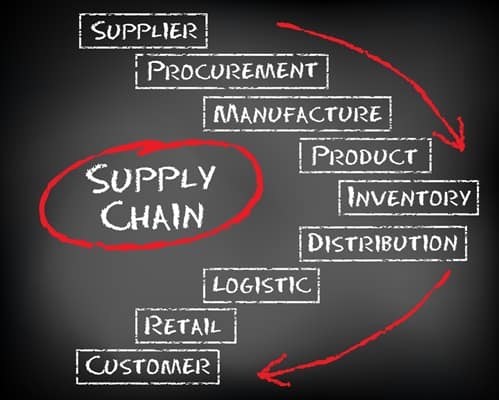AI and ERP: How Smart Automation Is Revolutionizing Business Systems

If you follow the news, it often seems like artificial intelligence (AI) appears in almost every product. It pays to examine the details, since AI tools can, and are, reshaping workflows and sparking new business models.
At The TM Group, we’ve tracked the ERP landscape for decades. We have our finger on the pulse of how vendors integrate AI into their offerings.
If you want to explore AI-enabled ERP solutions or evaluate their reliability, you’ve come to the right place.
Key Takeaways
|
AI augments, not replaces, core ERP functions.
|
|
Embedded AI automates repetitive tasks and provides smart insights.
|
|
Human judgment remains essential for nuanced decisions and oversight.
|
| Early adopters gain sharper forecasts, leaner inventories and faster decisions. |
| A clear integration roadmap mitigates risks and maximizes ROI. |
How AI is Changing ERP Software and Helping Businesses
AI is changing ERP capabilities in real time. ERP systems use AI to automate repetitive tasks across end-to-end operational workflows, like data entry and inventory management. Some vendors also apply AI to analyze data at scales beyond human capacity, delivering real-time, insightful analytics.
We’re seeing rising AI adoption in ERP deployments. For example, Microsoft Dynamics 365 Business Central now includes AI features. Microsoft invested $13 billion in its OpenAI partnership to bring AI to small and mid-sized businesses, via Dynamics 365 Copilot and Business Central ERP.
These tools help companies work smarter, adapt faster and perform better. With Business Central’s AI capabilities, clients can automate repetitive tasks, enhance customer service, anticipate challenges and improve decision-making.
Types of AI Technologies in ERP
ERP systems incorporate a range of AI technologies, each designed to enhance specific functions and improve overall operational performance. Let’s consider the primary types.
Image Recognition
Image recognition, a subset of computer vision, enables ERP systems to identify and interpret visual information from sources like images and video streams. In ERP, this technology can automatically extract data from visual inputs — i.e., tracking inventory items through camera images.
Machine Learning (ML)
ML algorithms learn from historical business data to inform automation processes and decision-making, without requiring explicit programming for each scenario. These self-learning models adapt continuously to an organization’s data across time, refining forecasts and reducing errors to improve efficiency throughout core business functions.
Natural Language Processing (NLP)
NLP enables ERP software to understand and respond to human language input. This capability makes ERP interactions more intuitive by allowing users to query or command the system in plain language, rather than through complex interfaces. NLP also analyzes unstructured text data — such as emails, support tickets or reports — to identify insights like sentiment or emerging issues.
Chatbots and Virtual Assistants
Chatbots and virtual assistants serve as conversational front ends to ERP systems, enabling users to interact with enterprise software through simple dialogue. Built on NLP technology, they simulate human-like conversations to help users retrieve information or navigate processes in real time. These AI assistants deliver instant, 24/7 support for routine inquiries — ranging from customer service questions to employee HR requests.
Predictive Analytics
Predictive analytics applies statistical modeling and machine learning to historical datasets to generate probabilistic forecasts. Within an ERP system, it supports projections such as demand forecasts, maintenance schedules and financial performance predictions.
How to Leverage AI in Your ERP
With the growing variety of ERP solutions offering different AI capabilities, businesses face a critical decision: should they choose an AI provider that integrates seamlessly with their ERP system, or implement native AI tools included into their existing ERP solution?
While ethical, environmental and legal considerations remain important when implementing AI tools, integrating AI directly into ERP platforms offers significant advantages. AI functions like an business analyst or process specialist, but it can work 24x7 independently and will deliver maximum benefit when integrated into a complete enterprise system. Similarly, AI-enabled ERP platforms provide businesses with competitive advantages over those relying on manual processes.
Consider two retail chains with different approaches to demand forecasting:
Retailer A (AI-enabled ERP) uses machine learning algorithms to analyze historical sales data while considering multiple variables, including seasonality, trends and external factors. Their system continuously integrates real-time data from store sales, weather forecasts, social media trends and economic indicators to refine predictive models. This enables accurate demand prediction and optimal inventory management, ensuring the right products reach the right locations at the right times.
Retailer B (manual processes) also analyzes sales data, but faces human limitations in identifying subtle patterns and correlations. They typically rely on statistical models (like moving averages) for demand forecasting, which struggle to capture complex variable relationships or adapt quickly to changing external factors. Weather patterns and economic conditions often go unconsidered due to analysis time constraints. These less accurate forecasts increase the risk of overstocking and stockouts, leading to potential losses and missed sales opportunities.
Applications of AI in ERP
AI in ERP systems supports a wide range of applications across industries. Let’s consider how professionals utilize AI-driven ERP in manufacturing, retail and healthcare environments.
Manufacturing
In manufacturing, companies integrate AI into ERP systems to streamline core operations. For example, intelligent algorithms analyze production data to optimize processes — from inventory management and production scheduling to logistics and quality control.
Leveraging machine learning and IoT sensor inputs, AI coordinates complex workflows in real time and quickly flags issues that humans might overlook. This increases equipment uptime and throughput on the factory floor.
Retail
Retail companies use ERP to manage supply chains, inventory and sales performance across multiple channels. AI strengthens these systems in various ways, commonly including refining demand forecasts and improving distribution logistics.
AI-driven analytics further uncover patterns in customer purchasing behavior to inform merchandising strategies and minimize risks, such as stockouts and overstocks.
Healthcare
Healthcare organizations integrate AI into ERP systems to streamline administrative and operational processes. For example, hospitals now automate routine back-office tasks, such as appointment scheduling, billing, claims processing and patient record management.
Operationally, predictive analytics within ERP supports forecasting patient volumes to optimize staffing, managing medical supply inventories based on usage patterns and scheduling equipment maintenance proactively to reduce downtime.
Key Advantages of AI-Enabled ERP Systems
Integrating AI into your ERP system requires deliberate planning. Define user access controls and permission levels up front, and ensure every AI output maps directly to your organization’s goals and KPIs. By setting clear objectives early and monitoring progress continuously, you’ll unlock the full potential of an AI-driven ERP.
Delay your AI rollout, and you risk falling behind competitors who use these capabilities to sharpen decision-making and streamline operations. Organizations that adopt AI-driven ERP platforms reap benefits, such as:
Enhanced Security
AI models can continually improve without accessing sensitive company data. This safeguards privacy and enables businesses to address specific industry needs as AI development shifts toward specialized market niches.
For example, healthcare providers use AI-driven ERP to optimize patient scheduling without compromising medical confidentiality. Similarly, manufacturers predict equipment failures without exposing proprietary production data.
Unmatched Scalability
AI handles data volumes far beyond human capacity, scaling seamlessly with business growth. As organizations add new features or develop proprietary models, AI adapts effortlessly to keep operations efficient and responsive.
Increased Productivity and Efficiency
AI-driven ERP systems deliver unmatched performance tuning and deep customization, offering insights and efficiencies once out of reach. Decision makers can quickly generate automated reports on critical activities — whether flagging transactional anomalies to prevent fraud or forecasting maintenance schedules to cut downtime.
Real-Time Predictive Analytics
With AI, organizations no longer depend solely on monthly reports to assess risks or capitalize on market trends. Real-time, AI-driven data analysis enables immediate responses to evolving conditions, protecting businesses from legal, operational and security risks.
For example, retailers leverage AI-powered ERP to instantly adjust inventory levels in response to sudden shifts in consumer demand. Similarly, financial institutions use AI-driven alerts to immediately identify and mitigate fraud risks.
Integrated Customer Experience
Integrating AI with CRM and marketing automation tools can personalize customer experiences. By unifying data across systems, AI can translate market trends and customer feedback into inventory and marketing strategies, enhancing satisfaction and efficiency.
Optimized Manufacturing Operations
Leveraging AI in inventory management cuts costs by reducing excess inventory, optimizing supply chain operational efficiency and minimizing waste. This strategic AI integration directly enhances profitability and resource management.
Understanding the Challenges and Limitations of AI in ERP Systems
Although AI-powered ERP systems present a transformative opportunity for businesses, implementing AI technology poses significant challenges and limitations that organizations must navigate carefully.
Recognizing these constraints is essential for realistic expectations and successful ERP implementation.
Required Human Oversight
AI-enabled ERP systems excel at automating predictable tasks but still require human oversight for nuanced decisions. Balancing AI capabilities with informed human judgment maximizes benefits and minimizes risks.
AI delivers remarkable precision in predictable processes. For example, automating invoice processing achieves accuracy beyond human capability; its predictability and susceptibility to human error make it an ideal candidate for AI. However, tasks requiring nuanced judgment present different challenges.
Although AI can match candidates to job postings or handle customer service inquiries, you should not fully outsource these critical functions to automated systems. Without visibility into AI algorithms’ decision logic, biased protocols can produce unethical outcomes or expose your organization to legal liability.
Data Security Risks
Handling sensitive data in AI-driven ERP processes poses risks. Data breaches and privacy concerns require strong mitigation strategies. Encryption, strict access controls and continuous monitoring protect sensitive information as AI systems process increasingly complex and confidential business data.
Skills Gaps
Another significant hurdle arises from employees needing to develop AI-related skills and knowledge. Successfully integrating AI into ERP systems demands a workforce capable of understanding, managing and optimizing these AI technologies. Investing in comprehensive training programs or hiring AI specialists can close this gap and prepare your team to harness AI's full potential within the ERP platform environment.
Implementation Complexity
The ERP implementation process presents several challenges, especially when integrating AI capabilities with existing ERP software features and datasets. Choosing the right AI-enabled ERP solution requires careful evaluation of compatibility, scalability and customization options. Ensuring a smooth implementation demands a strategic roadmap and close collaboration between IT teams and business stakeholders.
Cost Considerations
Cost considerations are central to the AI ERP equation. While upfront expenses for AI-powered ERP may appear high, long-term returns often balance these costs. Improved accuracy, streamlined workflows and actionable insights enhance operational efficiency and competitive positioning. Organizations should plan budgets carefully, accounting for both initial deployment and ongoing maintenance.
The Future of AI in ERP Systems
While the future is uncertain, the next wave of AI in ERP systems will likely center on technologies that increase automation, transparency and adaptability across business operations. Here are the technologies many predict will shape the future of AI in ERP systems.
Generative AI
Generative AI uses advanced models (like large language models) to generate human-like content and even write code based on ERP data. It is rapidly becoming central to next-generation ERP: by 2027, over half of AI-enabled ERP systems will include generative AI capabilities. These tools enable more natural, human-like interfaces and faster insights from enterprise data.
Explainable AI (XAI)
As AI-driven automation in ERP expands, organizations need to understand the logic behind the system’s decisions. XAI tackles this by revealing the reasoning behind AI outputs. Instead of opaque “black box” predictions, XAI provides clear explanations (for example, why the AI flagged a payment as high-risk)
Hyperautomation
Hyperautomation uses advanced technologies — such as AI, machine learning, and Robotic Process Automation (RPA) — to identify and automate as many processes as possible, as quickly as possible. It focuses on removing manual steps from business workflows. In ERP, this approach embeds AI deeply into operations so that software bots handle tasks across departments with minimal human involvement.
The Path Forward: Speak With an Expert Today to Learn More About AI ERP Implementation
Navigating the terrain of AI as well as ERP necessitates a balanced approach. It demands proactive measures to mitigate risks, investment in skill development, careful selection of business solutions and a thorough assessment of costs versus benefits.
With diligent planning and strategic execution, harnessing AI’s potential within ERP systems can pave the way for transformative growth and enhanced performance.
If you’re curious about the benefits your enterprise could reap from automation, get in touch with our expert team to discuss a customized solution tailored to your needs.
Frequently Asked Questions
How Big Is AI in the ERP Market?
The global ERP AI market reached USD 4.5 billion in 2023. Analysts anticipate it to grow at a compound annual growth rate (CAGR) of 26.3% from 2024 to 2033 — reaching USD 46.5 billion.
How Is AI Used in ERP?
ERP solutions increasingly adopt AI integration across core business functions. Today, its primary use cases include demand forecasting (predictive analytics), fraud detection, invoice automation (and process automation more broadly) and predictive maintenance. Industry experts anticipate that AI technology will increasingly become the standard backbone for all ERP software solution functionality, enabling end-to-end autonomous business process management.
Will AI Replace ERP?
AI will enhance ERP solutions, not replace them entirely. Over the foreseeable future, ERP systems will continue to serve as the foundational data infrastructure and business logic framework. AI capabilities will augment these systems by adding intelligent automation, advanced analytics and predictive capabilities to existing ERP workflows.


